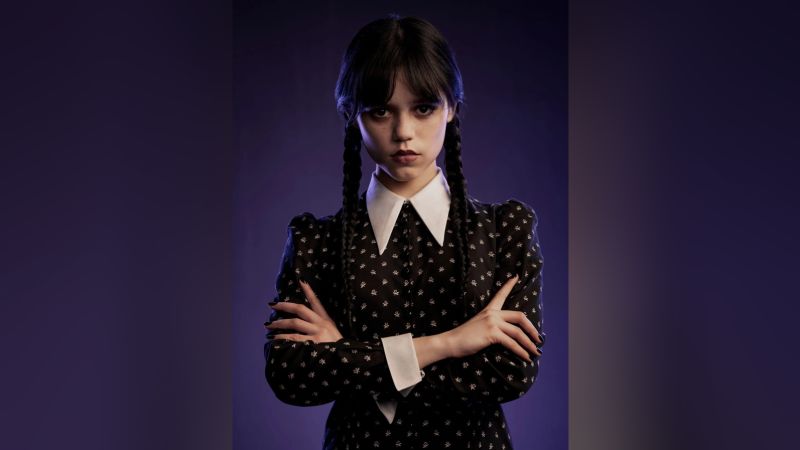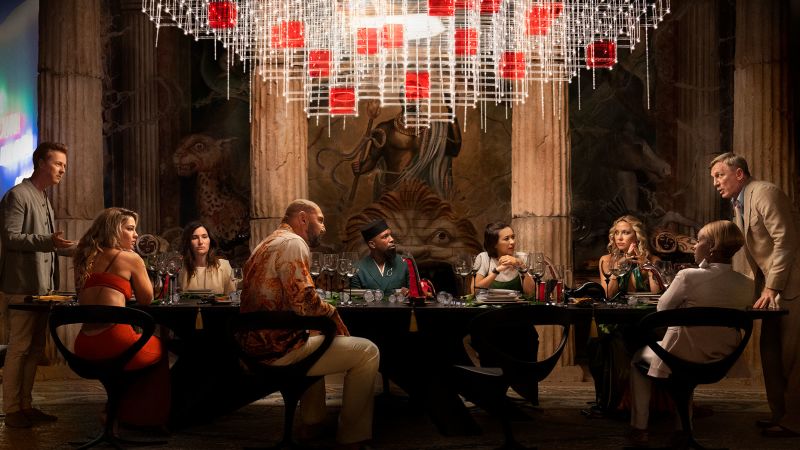Performed with supertitles to bridge the language gap, “Public Obscenities” tells of an Indian American PhD student, Choton, who visits his family’s Kolkata home with his Black American boyfriend, Raheem, a cinematographer. As the couple spend time with Choton’s relatives, the local LGBTQ+ community and an heirloom camera, the play ponders the human need for belonging.
It’s a remarkably naturalistic play for the adventurous Woolly. “‘Subtle’ is not a word that I would use to describe a Woolly Mammoth production very often,” says the company’s artistic director, Maria Manuela Goyanes. “But it is definitely a word that I would use to describe ‘Public Obscenities.’ And yet there are moments in ‘Public Obscenities’ that are absolutely still bold and trying new things,” she says, citing homages to Bengali cinema, for instance.
New things evidently don’t spook Chowdhury, 38, who has proved himself versatile. He has teamed with composer Laura Grill Jaye to write musicals, including “How the White Girl Got Her Spots and Other 90s Trivia,” which won the prestigious Relentless Award in 2022. A published poet, he has created short films and is developing what he describes as a “concert-memoir-physics-symposium.” He was an inaugural participant in Soho Rep’s Project Number One, launched during the pandemic to give artists salaries and benefits.
Chowdhury discussed “Public Obscenities” via Zoom from Brooklyn.
(The interview has been edited for length and clarity.)
Q: Tell me how you conceived of this play.
A: A few years back, my uncle described to me, shot for shot, a dream he once had. And then he was, “You’re an artist. Go make this movie.” That question of “who gets to be an artist?” animated the play. And that dream shows up verbatim in it. The plot is not at all autobiographical, but Choton in some ways is an avatar of me, who grew up between India and the U.S. and was always working very hard to prove my nativeness to both places. If you’re always working that hard to be native to a place, are you really native to it?
Q: Did it cross your mind that writing the play partly in Bangla would limit the number of productions?
A: I was so shocked that we were even able to find this cast. It was a year-and-a-half national search. As of yet, we have only done the play with this one cast, but we are in the process of casting understudies. I’m an only child of two physicist parents. All my work comes from a place of feeling like the translator between generations, between languages, between artists and scientists. That has to do with the fact that I grew up in this household where Bangla was spoken and physics was the topic of conversation at the dinner table. There are moments in the play when the Bangla is translated [via supertitles], and there are moments when it isn’t, depending on whose point of view the audience is seeing. Also, it’s a play about cinema, so having titles is a design conceit that makes sense.
Q: As the director, have there been times where you have said, “Why did this writer do that?”
A: Totally. As soon as I put the director hat on, I was, “This writer is so frustrating!” My training is as a theater director. This is my first big solo playwriting debut. I was adamant with myself that I not have my director hat on while I was writing. Were I worrying about that, I would never have made choices that are absurdly difficult in three dimensions. You know, the script calls for a live crow.
Q: There’s a character in the play who is described as kothi. Could you explain that term?
A: Kothi is a word that is used in Bengal and eastern India. It encompasses people that we think of as femme-of-center gay men, but also folks who may now also use “nonbinary” or “trans” to describe themselves. It is a capacious category that is both about a kind of femininity and gender, but also desire and sexual position and orientation. As a queer man, when I would go back to Kolkata, I became aware of identity categories on the subcontinent that don’t neatly map onto categories here in the States.
Q: At over three hours, including intermission it’s a long play. Many people believe attention spans are shrinking. Do you not believe that?
A: I think they are. I certainly feel my own attention span shrinking. But many comments about the play in New York were, “We wish it were longer. It should be a miniseries.” There is an expansive quality to the play’s universe that makes the length make sense.
Woolly Mammoth Theatre Company, 641 D St. NW. 202-393-3939. woollymammoth.net.
Prices: $25-$85. A limited number of pay-what-you-will tickets are available for each performance.



